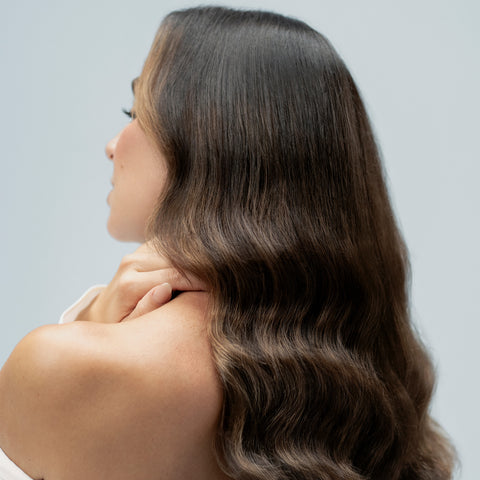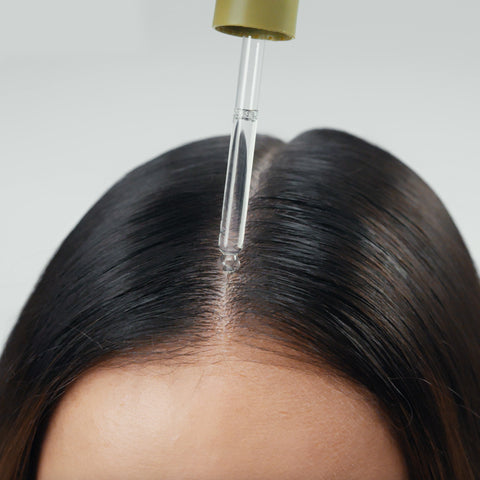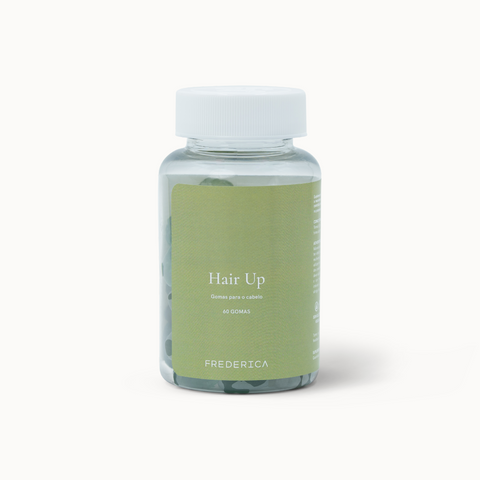Hair loss (alopecia) in women is one of the beauty topics that affects us most. If, when brushing your hair, you realize that there are more strands that fall out than expected, despair probably ends up taking over you, echoing in your mind the question: "What did I do to be going through this?" this?".
The truth is that hair is closely related to women's self-esteem, if it weren't for it being the icon of feminine sensuality par excellence. Every day, on average, 100 strands of hair fall out. However, during the transition between autumn and winter, our sensitivity may be even greater, as women begin to experience an increase in hair loss beyond what is normal at this stage. That's when you start looking at your brush, not knowing what to do: either buy vitamins or take supplements, but the thing is, sometimes that's not the best solution.
The fact is that losing hair is still a subject that remains taboo.
But, after all, what causes hair loss?
This event is, as a rule, a consequence of another problem that is affecting our health, according to the view of most dermatologists. Losing hair can also be a sign of a lack of sufficient iron levels in our body, hormonal changes or thyroid problems.
There are several factors that can influence hair loss, such as hormonal factors (if you have changed contraceptives, for example); issues related to genetics; you are experiencing the flu (the body ends up giving more importance to vital organs, no longer paying attention to your hair, and not providing it with the necessary vitamins); being in the pregnancy phase and during the breastfeeding period; suffer from autoimmune diseases; find yourself on a diet (with calorie restriction); environmental factors (sunlight and pollution).
If we do not provide our body with the energy it needs – when we decide to go on an unwise diet – we will cause future hair loss, as the body will no longer give importance to what it considers less important: hair and nails. Thus, they end up losing their shine, weakening them.
The truth is that hair loss is always a sign of some imbalance, namely stress (one of the main causes of this problem). When your hair falls out, it's because something fell out beforehand: your self-esteem, your peace or even your joy in life.
It is necessary to understand the cause of the problem in order to proceed with the appropriate cure. There is no one-size-fits-all approach and the right treatment is largely based on the type of hair loss. Talk to your doctor, because sometimes hair falls out due to another developing disease.
Some ways to deal with the problem:
- Wear your hair loose. This gesture helps to minimize tension along the entire hairline;
- Control the temperature of the heat devices you use, namely the dryer and styler;
- Do not dye your hair or straighten it;
- Don't sleep with wet hair. Dry it well after taking a shower;
- Use ampoules or supplements (iron, vitamin C, vitamin B12 or vitamin D3). Supplementation can be very useful in increasing the levels of vitamins and minerals present in the immune system;
- Change your diet. Choose meals rich in protein and healthy carbohydrates (fresh fruit, whole-grain crackers, etc.);
- Wash your hair regularly to avoid sudden hair loss.
Get our Hair Up gummies, specially created to strengthen your hair and make it shinier. Enter this link and make your purchase directly in our online store .























